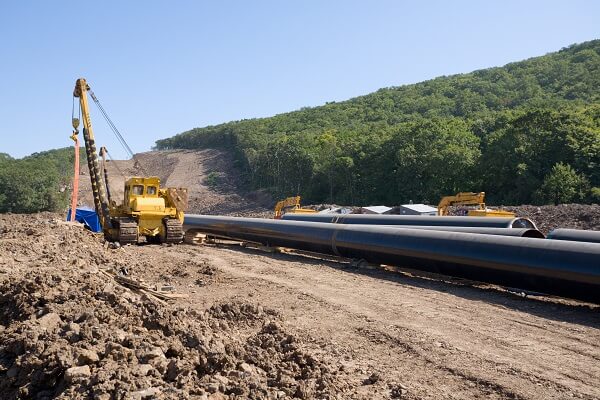Condemnation originates when the condemning authority (or “Condemnor”) plans the project. In these cases, it is extremely beneficial to know the condemnation basics in Texas.
Once the project is planned, the Condemnor hires engineers and surveyors to determine which land rights are needed. After the exact location of the project is decided, the Condemnor must make a formal declaration that, due to public necessity, certain residential property rights and commercial property rights must be acquired from property owners in order to complete the project. The Condemnor should notify all property owners whose land will be taken for the project. The Condemnor typically orders a property appraisal of the fair market value of the entire property and the specific property rights sought to be acquired by the Condemnor.
Next, the condemning authority is supposed to attempt to obtain the rights it desires through a good faith negotiation process with the landowner. However, simply making one offer has been held by our Supreme Court to be all that is required. The condemning authority usually makes an initial offer followed by a final offer letter.
The final offer must be based on a written appraisal report. This report should fully explain the just compensation due to the landowner. These appraisals, however, often underestimate the true value of the property being taken and of any damage to your remaining land. If the landowner and condemning authority cannot reach an agreement after the final offer, then the condemning authority must initiate a condemnation lawsuit in order to acquire the property.
Condemnation Basics in Texas
In Texas, the condemnation process is a two-phase litigation process. The first phase includes the Special Commissioners’ Hearing. Three commissioners are appointed by the court to hear evidence and arguments from the parties. The commissioners determine the amount which should compensate the landowner. The only issue considered by the commissioners is the amount of compensation. They may not consider or determine the legal issue of whether the condemning authority has the legal right to acquire the property.
Landowners are not required to participate in this first phase of the condemnation process. There are often good reasons not to participate. Some of them can be:
- The costs and expenses.
- The fact that the commissioners’ findings are not binding if either party timely objects to them.
- The short time your appraiser has to prepare a detailed report correctly.
- The lack of discovery, depositions and documents showing the details of the project before the hearing. This can cause your own appraiser to make serious errors.
- The downside of educating your adversary about what they did wrong. This can allow them to correct their own mistakes before the real trial that is binding.
Condemnation and Commissioners’ Hearings
One aspect of condemnation basics in Texas that many of our clients find confusing are commissioners’ hearings. These hearings often only serve to educate your adversary. This is especially true in cases with a large difference of opinion between the parties, where it is virtually certain that one party or the other will object to the commissioners’ findings for the other party.
Further, many practitioners fear a bias against landowners in such hearings, because special commissioners are paid for their work. But any commissioner who rules for a landowner can be objected to by the Condemnor and thereby prohibited from serving in later hearings on the same project.
After the special commissioners’ required deposit amount is filed, either party may object if either is dissatisfied with the outcome (with a crucial deadline to object). The condemning authority must deposit the amount in order to take possession of the property being condemned during the pendency of the litigation. If no objection to the Award is filed, the court may enter a final judgment consistent with the commissioners’ recommended compensation amount.
The second phase in the Texas condemnation process is the litigation phase. If a case does not settle, then the case goes to trial, often before a jury. The commissioners’ recommendation does not affect this stage. Appeals can follow this trial.
Answers to Your Condemnation Questions
While Texas landowners have every right to negotiate with a condemning authority on their own without an attorney, it is not advisable. An attorney who focuses their practice on eminent domain laws knows how to protect your rights. They can help you avoid making mistakes during negotiations that could result in you not getting the full value of your land.
Read more
When a Texas property is selected for condemnation, one of the first steps is to reach out to the landowner to request the right to enter their property to conduct a professional survey.
Texas eminent domain laws do not include any right to entry statutes, therefor a property owner can refuse to give them access. However, this usually won’t stop the survey and won’t stop the condemnation process from moving forward.
Read more
Under the U.S. Constitution and the Texas State Constitution, the government has the right to obtain land through eminent domain. This includes federal, state, county and municipal governments, as well as water districts and school districts. It also may include other entities and authorities to which a government entity delegates eminent domain authority to acquire land for a public use.
Read more
Highlighted Condemnation Case Results
At Dawson & Sodd, we help our clients through all stages of the condemnation process. This includes through trial and appeals if necessary. In one case result, our clients were Denton County landowners Terry and Ossie Button. The Buttons fought a long battle with Crosstex Energy over the company’s natural gas pipeline easement across their undeveloped property. The appellate court upheld a jury verdict that the easement diminished the land’s value and limited what could be done with the property. Crosstex originally offered $44,955. The The net recovery to the landowner after fees and litigation expenses was $609,193.36 (inclusive of the Special Commissioners’ Award).
Experienced Texas Condemnation Lawyers
Experienced representation is important through each step of this process. The deadlines for paperwork can vary and are often crucial. Ensuring that every phase is successfully completed is essential to win fair compensation or fight the right to condemn in court. A Dawson & Sodd condemnation lawyer can protect your rights and ensure you receive just compensation for your property.







